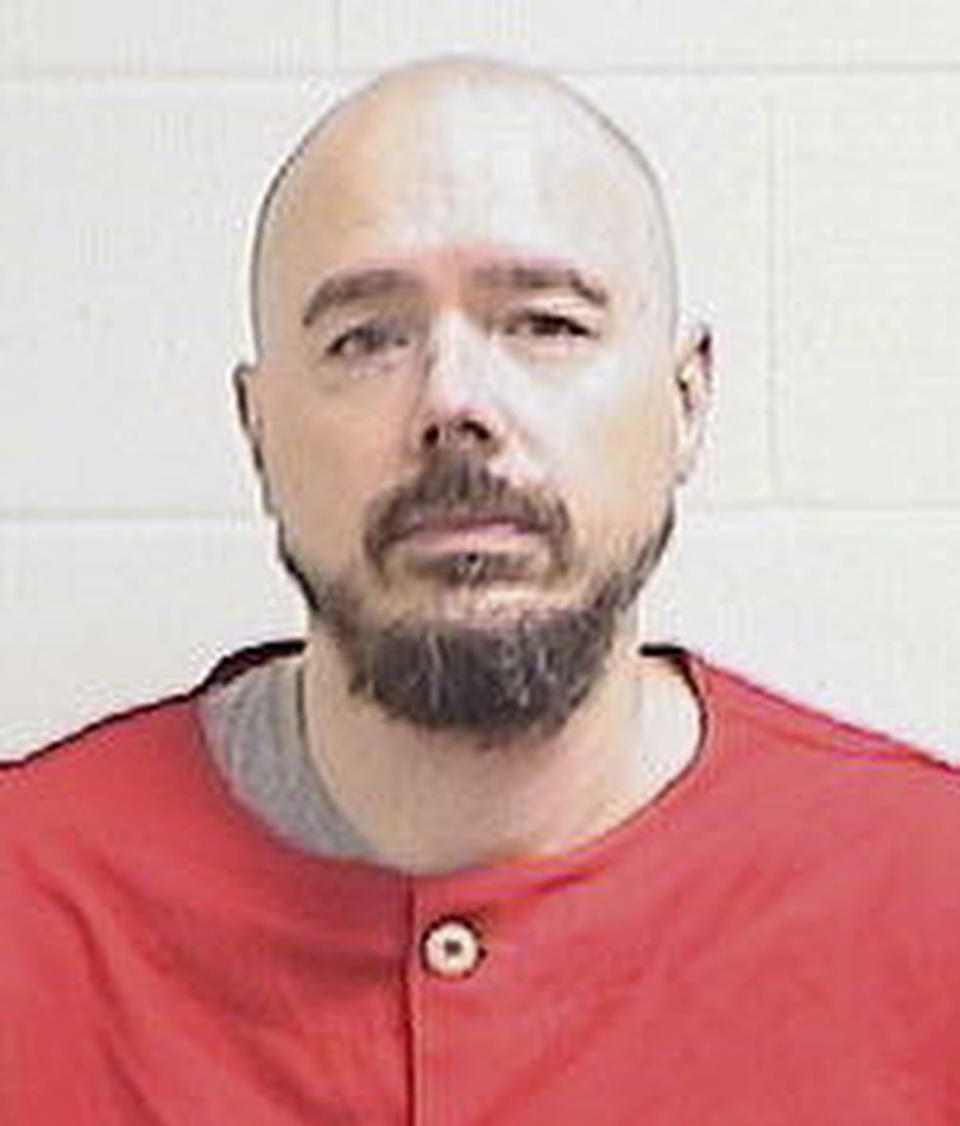Indiana carried out its first execution since 2009 before sunrise Wednesday, with much of the process concealed from the public.
Under state law, no media witnesses were allowed to view the execution of Joseph Corcoran, 49, who died by lethal injection for the 1997 killings of his brother and three other men, one of whom was the fiancé of Corcoran’s sister.
The condemned man’s legal team continued Tuesday to petition the federal courts, including the U.S. Supreme Court, to halt the execution after a federal appeals court on Monday sided with a federal judge who ruled that he is competent to be executed.
Advertisement
Advertisement
The Indiana Department of Correction said in a statement that the execution process began shortly after midnight CT and Corcoran was pronounced dead at 12:44 a.m. CT.
His last words were: “Not really. Let’s get this over with,” the department said.
The department said Tuesday evening that Corcoran requested Ben & Jerry’s ice cream for his last meal. His execution could occur sometime between midnight Wednesday and sunrise, barring any last-minute reprieve.
Indiana Attorney General Todd Rokita said in a statement that Cocoran had “paid his debt to society as justice was provided to his victims.”
Advertisement
Advertisement
He added that the state carried out the execution “professionally.”

Joseph Corcoran.
Corcoran’s lawyers maintain that he suffered from “severe and longstanding paranoid schizophrenia,” documented in self-published books from prison in which he described being subject to “ultrasonic surveillance.” His mental state, the lawyers add, has prevented him from properly seeking post-conviction relief.
“If the courts do not stay the execution, we are asking Gov. [Eric] Holcomb to grant clemency to Joe, a seriously mentally ill man,” Deputy Public Defender Joanna Green said in an email Tuesday.
In a dissenting opinion for the appeals court, U.S. District Judge John Lee acknowledged that “given Corcoran’s long, undisputed history of severe mental illness and the pervasiveness of his continuing delusions, as evidenced by his book and recent medical records, Corcoran is entitled to have at least one court assess his competency to be executed.”
Advertisement
Advertisement
More in U.S.
In recent days, anti-death penalty groups have demonstrated at the State Capitol and delivered letters to Holcomb’s office, asking him to use his clemency powers.
“One week before we welcome the light of the Prince of Peace into the world,” David Frank, president of the Indiana Abolition Coalition, said in reference to Christmas, “the state in secret, under cover of darkness plans to take the life of Mr. Corcoran.”
Holcomb’s office did not immediately respond to a request for comment Tuesday. In June, Holcomb announced the state had procured pentobarbital, a sedative used in lethal injections, after “years of effort.”
“Accordingly, I am fulfilling my duties as governor to follow the law and move forward appropriately in this matter,” Holcomb said.
Advertisement
Advertisement
Some death penalty states have had issues obtaining lethal injection drugs, leading to a moratorium on the practice. Still, Utah this year executed its first inmate in 14 years and South Carolina its first in 13 years, while Idaho tried to carry out its first execution in 12 years but halted the procedure when prison staff members were unable to locate a viable vein.
Of the 27 states that still allow for capital punishment, only Indiana and Wyoming exclude media witnesses, according to the nonprofit Death Penalty Information Center.
A lack of media scrutiny and the confidentiality surrounding the practice of executions in Indiana are part of why the original prosecutor in Corcoran’s case, Robert Gevers, has spoken out against the death penalty.
Gevers, who served two terms as the Allen County district attorney and is now a defense lawyer, said his views on the death penalty began to evolve around 2011, more than a decade after Corcoran’s trial.
Advertisement
Advertisement
He said he would not pursue a death sentence if he were involved in the case today, although he understands why some prosecutors believe it is important to give victims’ loved ones that option for punishment in the pursuit of justice.
“I’ve seen it from both sides,” Gevers said, as he struggled morally with the issue. However, “I began to see that sparing an individual’s life is nothing more than righteous grace and nothing less than that.”
Kelly Ernst, a sister of Corcoran’s whose fiancé was among the victims, told The Associated Press that she now believes the death penalty should be abolished and that the state’s decision to execute her brother a week before Christmas is upsetting.
“My sister and I, our birthdays are in December,” Ernst said. “I mean, it just feels like it’s going to ruin Christmas for the rest of our lives. That’s just what it feels like.”
Advertisement
Advertisement
Corcoran was 22 in 1997 when he fatally shot his brother, James Corcoran, 30, in the home they shared in Fort Wayne. Also killed were Robert Scott Turner, 32, who was Ernst’s fiancé, and friends Douglas Stillwell and Timothy Bricker, both 30.
Five years earlier, Joseph Corcoran was acquitted in the murders of his parents, Jack and Kathryn Corcoran, after jurors found not enough evidence to convict. According to prosecutors, Corcoran killed his brother and the other men as they were watching TV after he believed they were talking about his suspected involvement in his parents’ death.
Corcoran’s then-7-year-old niece was also home at the time of the shootings but was unharmed.
His mental state had been debated amid his trial.
Advertisement
Advertisement
In a petition last week asking Holcomb to commute Corcoran’s death sentence to life in prison without parole, his lawyers stressed that he can be housed safely and has not had any incident reports while he has been incarcerated since 2006.
“Although Joe suffers from delusions, his delusions purely result in him believing he is being tormented and publicly embarrassed,” they wrote. “They have not resulted in any violent acts towards others during incarceration.”
Seven other inmates remain on Indiana’s death row, according to the Death Penalty Information Center.
A Republican state lawmaker filed legislation this month that would repeal the death penalty, and Corcoran’s supporters hope Holcomb would at least grant a reprieve until debate could be heard. Gov.-elect Mike Braun, a Republican, like Holcomb, has said he supports legislative debate on the issue.
This article was originally published on NBCNews.com
EMEA Tribune is not involved in this news article, it is taken from our partners and or from the News Agencies. Copyright and Credit go to the News Agencies, email news@emeatribune.com Follow our WhatsApp verified Channel




